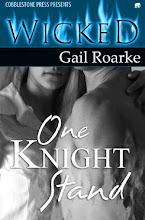Wow. Time flies when you're up to your elbows in a novel. I began my second novel, a science fiction story, at the beginning of April. By the end of April I had 60,000 words done. May went rather slower--about half as fast, in fact. By the end of May I finished the novel with 98,000 words. It's not done, of course. Not by any means. That was just the first draft.
I'm letting it sit for a couple of weeks. I'll spend the next two weeks* working on short stories. Then I'll print the novel out, and go over it, rearranging a few scenes, maybe tightening some and lengthening others, and cleaning up typos. That'll be the second draft.
Then I'll let my spouse--and my first reader--have a look at it. Assuming Spouse doesn't point out any major problems, I'll give it another quick polish and send it out into the cold, hard world in search of a home. That should take me until the end of June.
At which point, it will be time to start a third novel. My goal for 2010 is to get four novels written and circulating. The longer-term goal is to do the same every year for the next four years. That should result in 20 novels in the hands of publishers, which means a) I'll have that much more practice** at plotting and writing novels, and b) with practice and persistence, the odds should be pretty good that I'll have sold at least one. And to a major New York publisher, mind you. That doesn't count shorter novels I may or may not write and submit to smaller, possibly online epublishers.
In the mean time, I intend to start posting to this blog more regularly. Beginning on the 16th of this month, I'll be posting every Wednesday on the topic of How I Write. I'll be participating in a multi-blog effort, wherein all the bloggers will be posting on the same topic each week. It should be fun, and with any luck, educational for everyone involved. Stay tuned for that!
*I spent most of the last week suffering from a summer cold and doing very little writing.
**Assuming I'm starting from scratch (which isn't true), and assuming that, as it is often said, a writer has to produce a million words of crap before writing anything good, twenty 100,000 word novels is TWO MILLION words. Given that I've already sold a number of shorts, I like to think that I'm closer to breaking in than that. But the only way to find out is to keep writing and pitching, so that's the plan.
A Holiday Season Of Peace And Joy
-
Wishing a holiday season filled with peace and joy for you and your family.
See you January 4, 2026.
1 week ago








